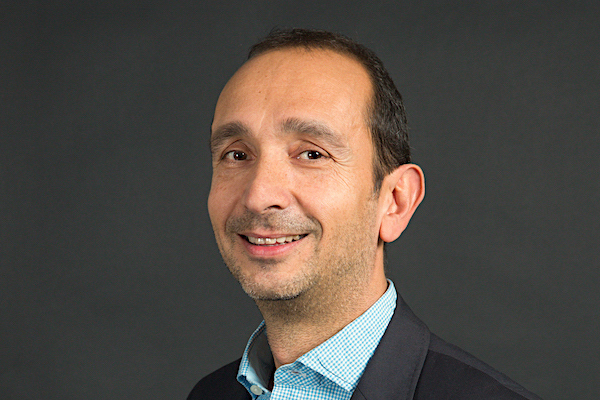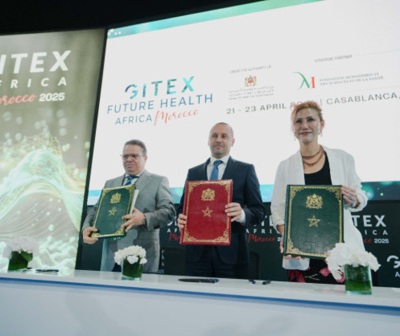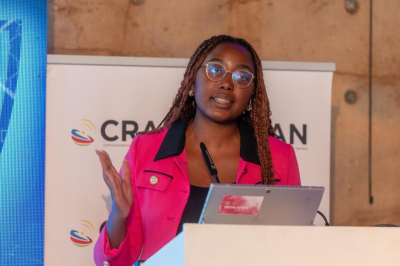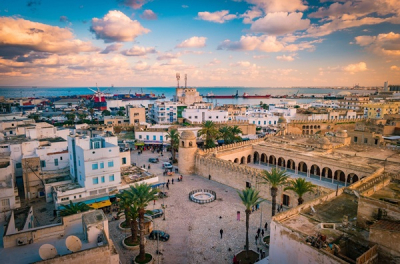On the sidelines of the 2022 Climate Change Conference (Cop27), Jean Michel Canto, Orange Middle East & Africa's Director of Sustainable Energy & Partnerships, gave an exclusive interview to We Are Tech. During the interview, he highlighted the French group’s climate commitment in Africa.
We Are Tech: Why is Orange taking part in the Cop27?
Jean Michel Canto: Several years ago, Orange made clear environmental and climate commitments. For a long time, we are committed to these issues, which are very important to us. We have already taken several actions in our markets to reduce our environmental impact. Through the Cop27, we want to support governments in reaching their ecological and energy transition goals. We want to work with governments to develop renewable energy, to develop ecosystems, and circular economies. At the Cop27, Orange Group, through the Director of the Environment, is reiterating its environmental commitments and its availability to support governments in their projects to their reduce carbon footprint. We are ready to work daily with countries to collectively achieve these commitments.
WAT: You keep mentioning support to countries. What does such support concretely entail?
JMC: One of the major challenges in achieving our environmental objectives and for countries to achieve theirs is access to renewable energy. The second axis is the whole ecosystem of the circular economy.
Presently, it's true that regulations don't allow us to do exactly what we would like to do, notably build and develop solar farms and directly use this renewable energy. But by working hand in hand with countries, we are confident that we will be able to change these regulations and attract the necessary investments in African countries to multiply the deployment of solar and wind farms wherever possible.
The circular economy is the recycling of telephones and telecom equipment that we use every day. For renewable energy, as an operator and private industry, we can attract the capital needed to develop renewable energy in Africa. In Africa, no factories are specializing in refurbishing telecom equipment and phones for new use. Our ambition is to work with governments so that such factories can be set up in Africa.
For the time being, telecom equipment and phones are sent to Asia and Europe to be refurbished. We are sure that the development of this type of activity on African soil will create jobs but will also contribute to the development of the circular economy and reduce raw material extraction, which is harmful to our planet.
WAT: Phones become electronic waste when they are no longer useful. This is obvious but how does Orange’s infrastructure harm the environment?
JMC: Like every activity, industry, and company, we need electricity. So do the infrastructure through which we provide services to our subscribers. Using non-renewable energies such as diesel to guarantee the continuity of our services in certain areas with poor access to electricity accentuates the impact of our infrastructure on the environment. Put simply, it is through carbon emission. Renewable energy greatly reduces this carbon footprint. We are already working with our infrastructure and equipment suppliers to ensure that they have a strong commitment to limiting their impact on the environment right from the design stage.
Objectively, in Africa, the major factor contributing to our carbon emissions is the use of energy to power all our telecom towers, data centers, etc. This is why we are insisting on the use of renewable energy sources. That's why we put a lot of emphasis on working with countries or governments to develop renewable energy. A few years ago, we were using so many generators to power our telecom towers. But we are gradually deploying solar panels, which generate clean energy, to replace them.
Digital technologies are great tools. They enable videoconference and teleworking but telecom infrastructures are mostly needed for all that. With eco-responsible telecom infrastructures and equipment, we can greatly limit the impact we could have on the environment and the climate.
WAT: Orange has developed a program called "Net Zero Carbon 2040". What is it about?
JMC: Net Zero Carbon 2040 is Orange's strong commitment to the climate. It means that we are committed to strongly reducing our carbon emissions through the use of renewable energy. We are aware that there will still be an incompressible minor part of our carbon emissions. Not every activity can be fully clean. To compensate for these residual carbon emissions, we must commit ourselves to solutions that are called carbon sinks, i.e. solutions that will capture the CO2 that we will emit.
We have already launched major carbon sink projects in countries like Senegal, Cameroon, and Madagascar. We have made commitments to plant trees and protect the mangrove ecosystem. We have signed a partnership with experts in the field. Orange is specialized in the telecommunication industry. So, we rely on environmental experts for climate-related issues, including the protection and development of the mangrove, which is a great carbon sequester. We are committed to taking such actions in Africa and we believe that thanks to them, we can meet our net zero carbon goal by 2040.
We have a milestone for 2025. This milestone is that by that time, more than half of the energy used by the group must be generated by renewable sources. This is a big challenge. That's why we continue to power our sites with solar panels and do the same for our data centers, which are energy-intensive.
In Africa, we have more than 6,000 telecom sites equipped with solar panels. We will continue and accelerate this energy transition to the rest of our equipment. In countries such as Guinea, Sierra Leone, Madagascar, and Jordan, more than half of the energy consumed by the network comes from renewable energy sources that we produce ourselves. If possible, we would like to develop solar and wind farms, to inject this clean electricity into the electricity grid of the countries in which we operate and use this clean electricity on all our telecom towers. In addition to that, we have commitments to reduce our carbon footprint on what we call SCOPE 1 and 2, fuel and electricity namely. Orange as a group plans to reduce the use of such energy sources by 30%.
WAT: Orange works with telecom tower managers. How does the group reconcile this operational cost management with its environmental commitments?
JMC: We work with tower managers (towercos) in five countries. In the twelve other markets, we operate our own towers. When we operate our own towers, we call on experts to help us with this transition. We call these experts ESCOs. These energy experts from the telecom industry help us to modernize our energy production chains in our telecom towers, adding as much solar energy as possible, and adopting the right size for our current and future needs. In Africa, all three tower managers we work with have renewable energy commitments for 2030, 2040, and 2050.
WAT: In addition to reducing the environmental impact of its business activities and carrying out direct actions in favor of the climate, such as carbon sinks, how does Orange's investment in the environment integrate the well-being of the African population?
JMC: The impact on society is as important as the impact on the environment. Through all the direct climate activities, such as the protection of the mangrove, which meets our environmental objective, Orange also aims to develop the entire ecosystem around it to benefit populations. Training will therefore be organized and new jobs created as we know that the mangrove produces wood and by-products can therefore be produced and sold. We have included support in this very important project. We also are deploying Orange Digital Centers (ODC) everywhere in Africa. Through those infrastructures, we will raise awareness of environmental issues by organizing activities like coding competitions focusing on the environment for young people. Africans are awaiting those environmental projects because they will be the first parties affected by climate change. With the drought in some regions, fishing villages disappearing in Senegal, etc, those populations are beginning to feel the impacts of climate change.
WAT: Can we consider Orange Energie as one of the components of Orange's environmental action?
JMC: Yes, it is. Orange Energie allows access to solar kits, which are symbolic since by definition solar kits provide renewable energy for schools, professionals, etc. It is not limited to solar kit distribution, however. It also projects to build mini-grids, namely small solar farms that can supply one or two villages with no access to energy.
Once again, these are, by definition, renewable energies since they are solar fields that will be deployed. These are two examples that bring essential services to the populations, in addition to responding to strong environmental issues.
The environmental issue is a broad subject and Orange is fully committed because it is important for us and the development of the African continent.
Interview by Muriel Edjo



















